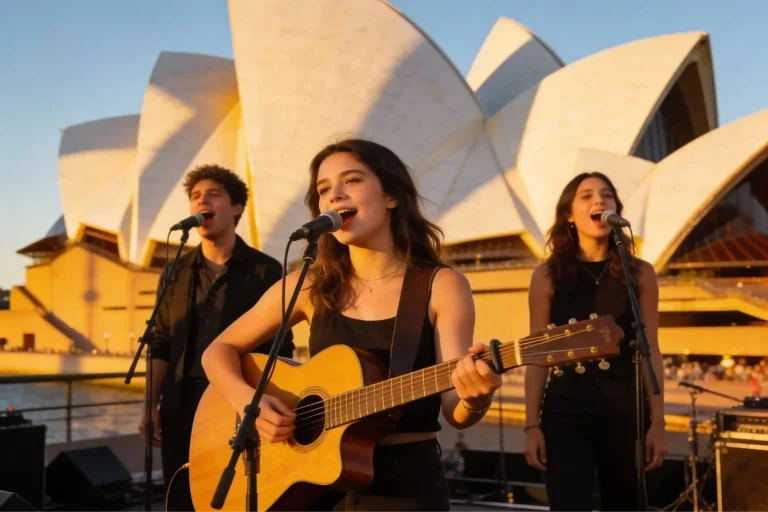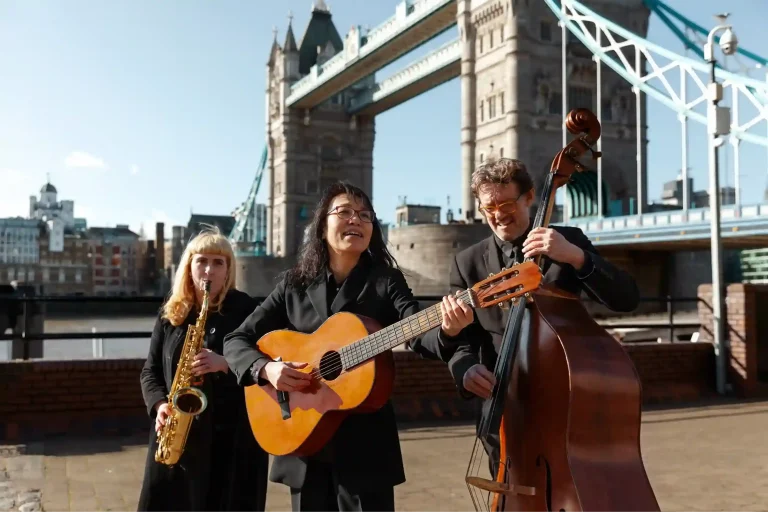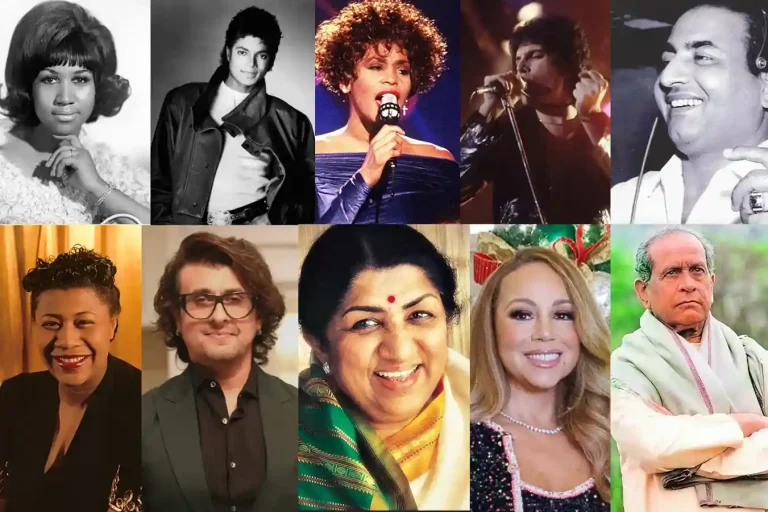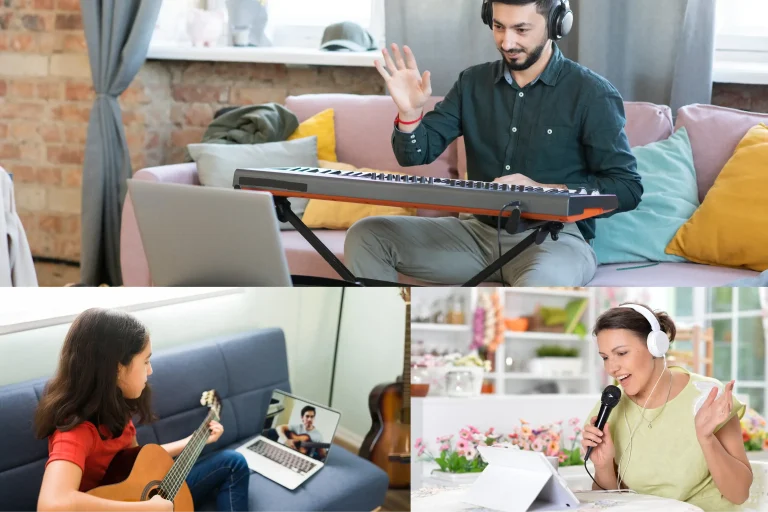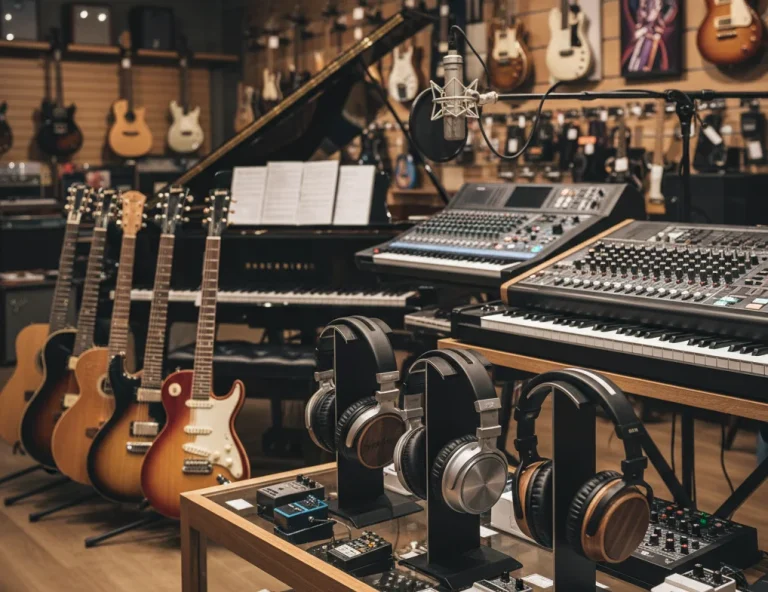All Topics
- Alchemizing Music Concepts for Students
- Artist Spotlight
- artium gift card
- Artium Maestros
- Artium News
- buying guide
- Carnatic Music
- Devotional Music
- Editorials by Ananth Vaidyanathan
- Film Music
- Guitar
- Hindustani Classical Music
- Indian Classical Music
- Indian Folk Music
- Insights
- Instruments
- Karaoke Singing
- Keyboard
- Kids Music
- maestros
- Music Education
- Music for Kids
- Music Industry
- Music Instruments
- Music Legends
- Music Theory
- Music Therapy
- Piano
- piano guide
- Success Stories
- Tamil Film Music
- Telugu Film Music
- Time Theory
- Tools
- Uncategorized
- Vocal Singing
- Vocals
- western classical music
- western music
- Western vocal music
Music Education, Music Industry
The Role of AI in Music: Inspiration or Imitation?
The Role of AI in Music: Inspiration or Imitation?

Table of Contents
In 2025, Artificial Intelligence is all the rage. The world has seen a sudden boom of AI in all things.
You may never know. You may have heard a song that you really like, only to learn that it was composed by AI and not a human. If you have ever found yourself in this situation, then worry not—you are officially on the new frontier of music creation.
The growing popularity of AI in music has raised eyebrows worldwide. Some are awed by its possibilities, and others are concerned about its implications. AI is no longer a science fiction concept we saw in James Cameron’s blockbuster Terminator. It is a reality shaping the very fabric of every industry, including music. AI is making a significant mark by composing symphonies and giving instant feedback.
But here’s an important question: Is AI in music enhancing human creativity or merely replicating it without emotion or intent?
Let’s explore this question in depth and trace AI’s origins in music, its creative capabilities, limitations, and the role it might play in the future of music education and artistry.
The Rise of AI in Music
The influence of Artificial Intelligence in music has been particularly transformative. From composing soundtracks to mimicking famous voices, AI has evolved from rule-based systems to complex neural networks capable of generating complete musical compositions.
A Brief Timeline of AI’s Musical Evolution

Artists and AI Today
With its rising popularity, artists and producers around the world are increasingly leveraging artificial intelligence in music production to:
- Generate chord progressions, beats, and melodies with tools like AIVA, Amper Music, and MuseNet.
- Remix old compositions into new genres.
- Personalize listener experiences using streaming algorithms.
- Master tracks automatically using platforms like LANDR.
- Co-create new songs by blending human creativity with machine suggestions.
Even Grammy-winning artists and top producers have explored Artificial Intelligence in music production, using it as a co-producer in their creative process. For example, Grimes, the electronic pop artist, has spoken openly about using AI-generated voice models, and the experimental music community has embraced platforms like Riffusion, which generates music from spectrograms in real time.
AI as Inspiration: Fueling Human Creativity
Contrary to popular belief, AI in the music industry will not replace, but empower musicians. Instead of being a competition, think of it as a creative companion. The one that never sleeps, doesn’t tire, and has a vast musical memory.
- Enhancing Creativity Through New Ideas
Online music learning, as is AI in music production, is gaining more popularity. What a human mind may fail to conceive, AI excels at suggesting. For example –
- Magenta Studio – Assists in extending melodies or provides rhythmic continuations.
- Amper Music – This AI tool for music learning can help people with no musical training create original compositions.
- Suno AI – It enables real-time song generation using text prompts, offering endless compositional possibilities.
Contrary to popular belief, using these tools doesn’t end your creative ability. They present a canvas of possibilities that every musician can paint over. Consider them ideation catalysts, offering musicians a jumpstart when inspiration stalls.
2. Human-AI Collaborations
Artists like Taryn Southern and Holly Herndon have pioneered AI in song creation. Taryn’s album “I AM AI” and Holly’s trained AI voice model, “Spawn”, have showcased how AI acts as a genuine creative partner. Both these scenarios display a human artist-led narrative where AI augments and expands the soundscape.
Such efforts show that AI can be used to extend artistic boundaries, not constrain them. These collaborations produce works that are sometimes experimental, sometimes mainstream, but always novel.
3. Discovering the Unexpected
AI has sprung open surprises, even its developers and programmers, by merging genres or producing structures that were not bound by musical conventions. This opens doors to:
- Unique genre fusions, like EDM + Carnatic or Jazz + Lo-fi
- Microtonal suggestions and rhythmic complexity beyond human bias
- New interpretations of melody and harmony outside the norm
With AI’s arrival in the music industry, we encourage all enthusiasts to explore these creative tools to discover their unique voices. Use AI to supplement traditional music learning and as a new pathway rather than as a replacement for a teacher or artist.
AI as Imitation: The Challenges and Criticisms
While it is indeed exciting to use AI in music, it is equally essential to acknowledge its valid criticisms. If you are a purist, you may find AI compositions lacking soul, meaning, and spontaneity.
1. Data-Driven Imitation
AI systems are trained on large datasets of existing music. While this allows them to replicate styles, it also means:
- Most outputs are derivative.
- Truly novel ideas are rare unless explicitly engineered.
In other words, AI often produces music that “sounds like” existing work but lacks innovation born from personal struggle or cultural context. This can lead to music that feels overpolished but emotionally vacant.
2. Absence of Human Emotion
What makes music special? The beat? The instrument? Or the artist?
Well, it is none of these. It is the emotional resonance it offers. For example, a parent’s lullaby or a raga performed by a master carries years of experience and emotional quotient. An AI lacks consciousness and feeling, and thus cannot replicate –
Emotional phrasing and improvisation
- Emotional phrasing and improvisation
- The subtle nuances of human performance.
While an AI-made song may sound technically perfect, it will still be emotionally hollow, and listeners often sense the difference.
3. Legal and Ethical Grey Zones
AI in the music industry may have advantages, but lacks the grey areas. As more and more people use AI-generated music, some pressing questions arise:
- Copyright Infringement: If AI is trained on copyrighted content, is the output a violation?
- Attribution: Who owns the music? The user? The platform? The data source?
- Deepfakes in Music: Tools now exist to clone artists’ voices. In 2023, AI-created tracks mimicking Drake and The Weeknd went viral, raising alarms about consent and misuse.
- Royalties and Compensation: Should the original data sources be credited or compensated?
The ethical issues in AI-generated music demand new legislation and global consensus. As of 2024, copyright laws in the U.S., U.K., and India are still evolving to address ownership of AI-generated content.
Ethical issues in AI-generated music are a genuine concern for artists worldwide. The answer lies not in choosing between inspiration and imitation but in maintaining a proper balance between both. Here is how you can go about it –
Hybrid Models in Practice:
- AI Song Contest: These annual global competitions pair musicians with AI tools to compose hybrid tracks, which are judged on creativity, emotional impact, and originality.
- Google’s SynthID: This watermarking tool ensures traceability in AI-generated tracks, promoting transparency.
- Lyria by DeepMind: Combines AI-generated music with ethical design frameworks, including embedded metadata and human oversight.
These projects highlight that AI works best when it complements, not replaces, the human artist.
Educational Perspective
From an educator’s viewpoint, AI presents an extraordinary opportunity. It allows students to:
- Deconstruct complex compositions.
- Simulate real-time improvisation scenarios.
- Receive unbiased feedback on timing, pitch, and tone.
- Analyze harmony and structure using data-driven visualizations.
The key lies in guiding students to use AI consciously and ethically, making them creators, not consumers.
The Future of Music Learning and Creation
AI enables AI-powered music lessons that:
- Analyze student performance in real-time.
- Adjust lesson difficulty dynamically.
- Provide targeted exercises for improvement.
- Adapt to a student’s emotional state and learning preferences.
Whether you’re a beginner or advanced learner, AI ensures your learning path evolves with you. Tools like Tonara, Yousician, and Artium Academy’s interactive modules offer hyper-personalized journeys.
AI for instrument learning is another important aspect that learners can take inspiration from. AI tools simulate instruments like a piano, tabla, or guitar and:
- Offer tangible feedback and scoring.
- Integrate with online curriculum.
- Enable practice even without a physical instrument.
- Provide visual aids, like note-highlighting and finger-tracking.
This makes music education more accessible than ever before.
Nurturing Creativity in Learners
AI empowers students to:
- Experiment with song structure.
- Remix traditional compositions.
- Explore genres beyond their region or comfort zone.
- Compose their first piece without needing complete mastery of an instrument.
How Artium Uses AI to Deliver a World-Class Music Learning Experience?

At Artium, we integrate these AI technologies into our teaching philosophy, ensuring students grow technically and artistically.
We combine the power of AI with the warmth of human teaching to create a truly immersive music learning experience. Our smart tech ensures that every live class feels like you’re right there with your teacher—no delays, no interruptions, just seamless music education.
With AI-powered practice studios and real-time feedback tools, students receive instant, personalized insights into their performance, enabling them to improve more quickly and stay motivated. Whether pitch correction, rhythm guidance, or visual note tracking, every feature is designed to make learning interactive, intuitive, and tailored to each child’s pace.Thanks to these innovations, we now conduct over 2 million minutes of live classes monthly, offering a structured, engaging, and globally connected music learning journey for kids everywhere.
Please read here for more information.
Key Takeaways
The world is quickly changing with the arrival of AI, and its effects are also being seen in music. AI in music has transformed how music is created, learned, and consumed. While AI in music production has been shown to enhance creativity, it also struggles with emotional depth. Not just that, but AI also has a reputation for copying artists’ work for inspiration. There is an urgent need to develop and manage AI’s expanding role within an ethical and legal framework. The best results come from collaboration, not competition, between humans and machines.
At Artium Academy, we believe that AI is not a threat. It is a creative partner, a tool to push boundaries. It will help learners explore new forms and make music education more inclusive and imaginative. But this does not change that music is the core of human art, confused with emotion, culture and identity.
Let AI be the amplifier. Let your soul be the song.
FAQs on AI in Music
Yes. AI-powered tools today can provide personalized feedback on pitch, rhythm, tone, and technique. While they don’t replace human mentorship, they enhance it by making practice more efficient, structured, and accessible, especially for early learners.
No. AI lacks emotion, cultural context, and improvisational nuance. It is best seen as a creative assistant ideal for feedback, ideation, and analysis. The soul of music still comes from human expression, which AI cannot replicate.
It depends. It can be ethical if the music is original and not directly copied from copyrighted material, and appropriate tools are used with clear attributions. However, legal and ethical frameworks around AI in music are still evolving globally.
Students can use AI for:
– Real-time pitch and tempo feedback
– Visualizing scales, chords, and compositions
– Creating backing tracks or exploring new genres
– Composing songs without advanced instrument knowledge
This helps them practice independently and creatively.
AI can mimic emotional patterns based on training data, but it doesn’t feel emotion. As a result, the compositions may sound pleasant but often lack the raw authenticity of lived human experiences.
Yes, as long as the tools are vetted, age-appropriate, and used under guidance. Platforms like ours integrate AI into structured curriculums, making it safe and meaningful for kids and teens.
Risks include:
- Over-reliance on machine-generated ideas
- Copyright infringement if models use unlicensed data
- Emotional disconnect in AI-made compositions
- Misuse of artist voice cloning (deepfakes)
That’s why human oversight and ethical usage are crucial.

